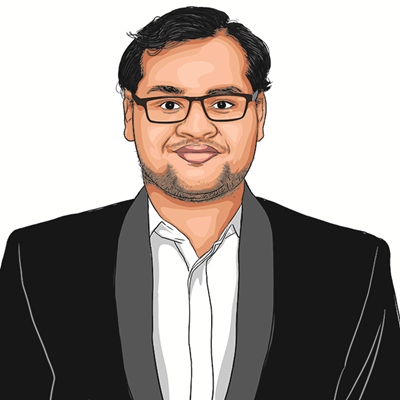

New DelhiDec 3, 2024 19:10 IST First published on: Dec 3, 2024 at 19:10 IST
With an all India Rank 4,321, I was one of the first doctors in my circle in the country to opt for an MD in Community Medicine, short for Preventive and Social Medicine, a discipline that deals with but is not limited to, community health and its concurrent branches, including epidemiology, statistics, and policy making. On the day of admission, the clerk in a blue sweater was gobsmacked by my decision to not participate in the next rounds of counselling. With eyes rolled over and lips slightly parted in dismay, he asked, “Why did you choose to be a dispensary-wala doctor despite such a good rank?”
“Because others don’t want to”, I told him confidently. His initial surprise changed to discomfort. His demeanour henceforth had a distinct tinge of hostility. This feeling of othering, while familiar, felt new in this context. My family too was disapproving. A week after my NEET-PG result was declared suddenly, I was onboard a flight from Rome to India when an anxious call from my father got heated. He told me to do radiology — a branch I had earlier wanted to pursue — because its prospects were shinier and pay cheques bigger. My mother told me that she would feel humiliated in front of relatives. My grandmother, whom I desperately wanted to be by my side, asked if all I aspired to in my life was to become a namak haraam. Snobbish, intrusive members of the extended family chimed in with their concerns about job security, peanuts for salary, the absence of stability, or the lack of “feel” of a doctor. People from whom I sought advice sounded like broken records.
Why does everyone seem apprehensive of the branch? There are practical concerns. A substantial number of students become doctors simply because there isn’t a doctor in their family. They internalise their parents’ vicarious dreams, slog hard and cram fast — harbouring an image of a doctor in a white coat breaking bad news. For them and their parents, a doctor is one who writes a prescription, gives an injection, or removes stones from an infected gallbladder. A society’s perception of a “disease” is very different from WHO’s holistic understanding of it. For the general public, pneumonia, angina, and cancer qualify to be called diseases. A common cold doesn’t make the cut, so doesn’t the hush-hush topic of mental disorders. So, a disease, for a layman, is one that causes restriction in bodily function, and the one who can treat them is called a doctor.
Even if a student might feel inclined to take up an unconventional subject, whether it be PSM or biochemistry, chances are that they won’t, after carefully analysing those departments. If one still isn’t dissuaded, meeting the residents who, in some cases, are the most belligerent critics of the subject, would become the final nail in the coffin. Barring a few, doctors who are tired of trying and can’t get anything “respectable” over the years take up the branch.
A subject like PSM demands integration with other fields. This requires initiative from a student’s end and a wide network, which are not possible in the narrow confines of a medical college campus. Added to that is the ability to think clearly and imagine freely which is seldom appreciated and, in fact, flattened out in a medical college.
If we zoom out a little, we might be able to see how a broad disinterest in PSM — or other pre-clinical or para-clinical subjects — might hint towards the broader ails of a capitalist society. Some may become a doctor for the prestige and power that the title offers. One might think that the call comes from a desire to save lives, but making money, under this economic order, has become equally important.
most read
Capitalism has penetrated healthcare — it’s all about making money. More than that, it has created a rift between the doctors and patients. The idea of a doctor who cares for the poor is long forgotten. Some of my friends even chose medicine because they felt it would help them prosper. A doctor once asked me, how can somebody still be poor after welfare schemes such as Ayushman Bharat. The audacity of such questions is disquieting — India ranks significantly lower in all public health indicators than its neighbours Sri Lanka, Nepal and Bangladesh.
Personally, my decision to pursue PSM led to bouts of fear and confusion. This decision will have far-reaching consequences for my life. My thoughts, opinions and priorities are in constant flux and evolve with me. It’s difficult to say whether I’ll still feel the same way about the branch in 10 years. All I know is that I feel strongly about it right now. That is all that should matter, at least for right now.
Gupta is a doctor, and author of Yeh Dil Hai Ki Chordarwaja


